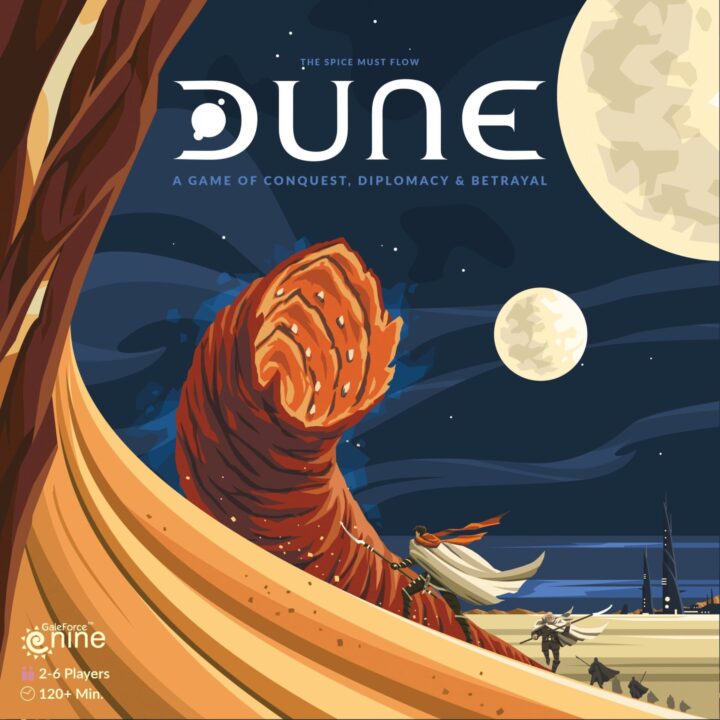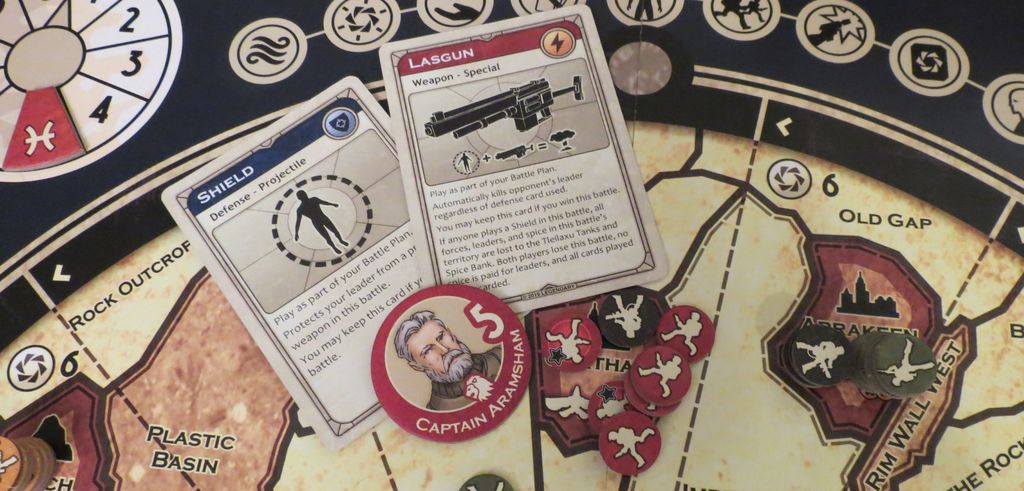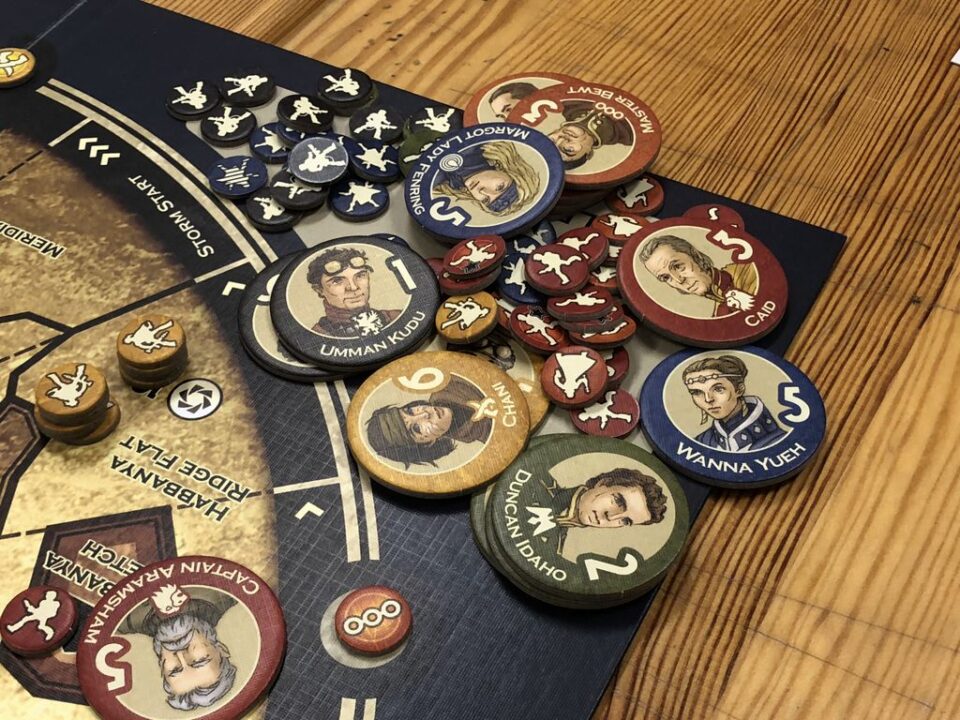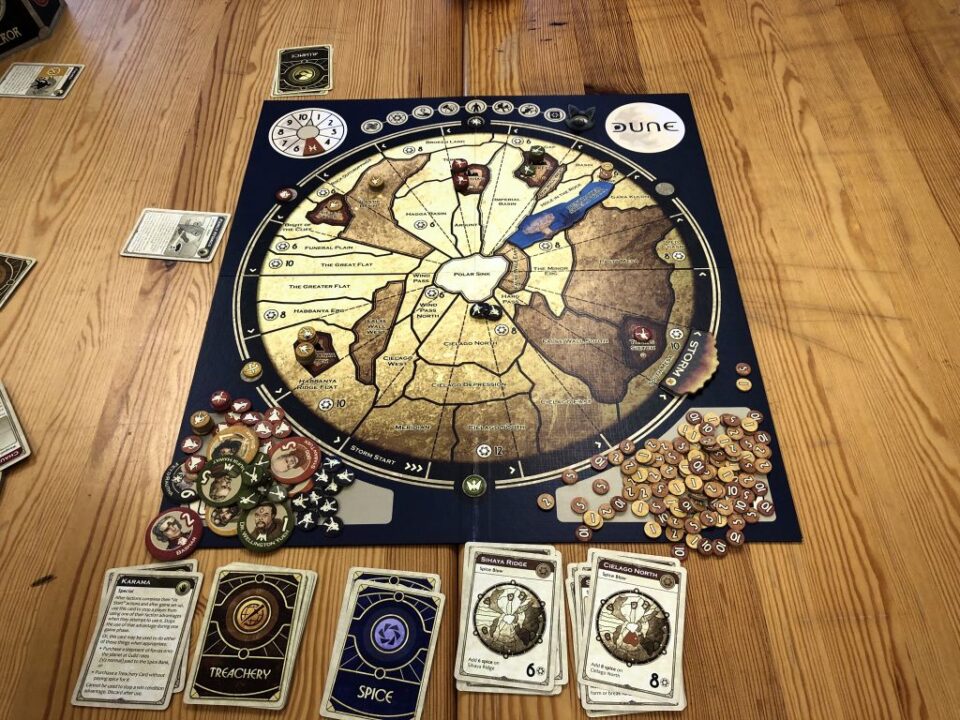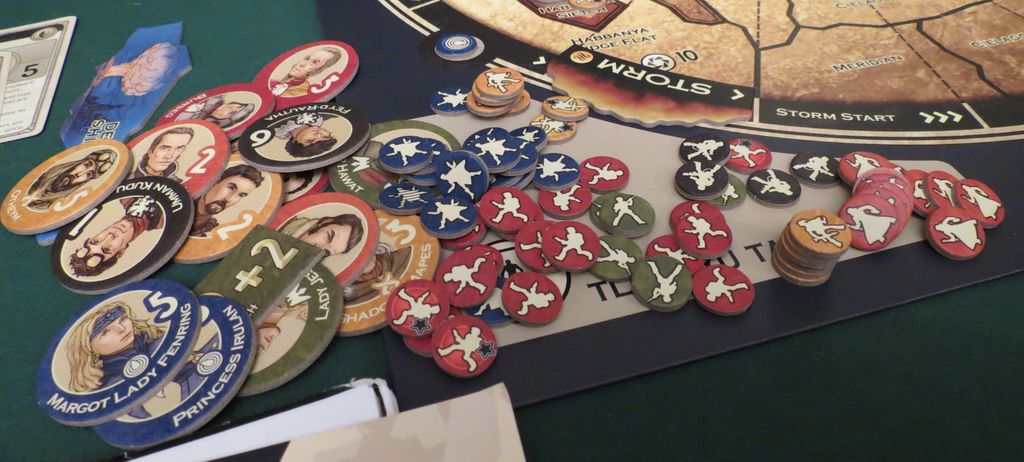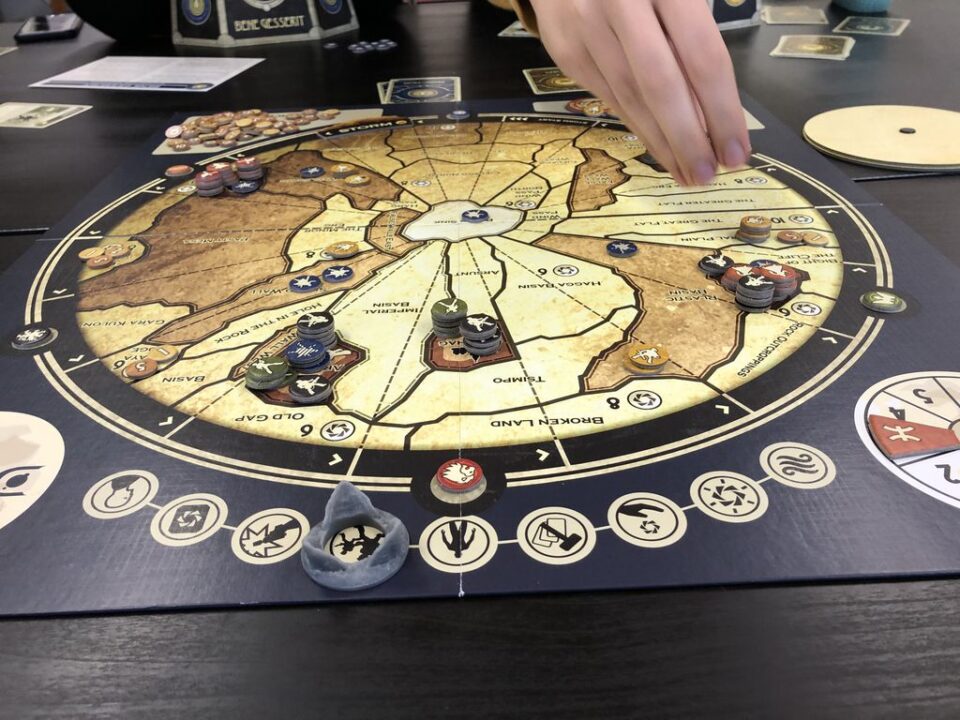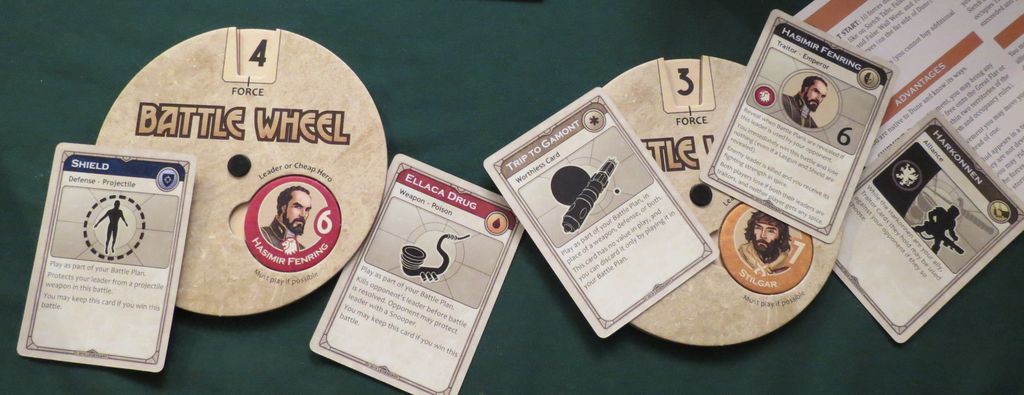Ever wanted to backstab your friends while plotting to rule the desert? You’re in the right place. I gathered my most devious buddies, brewed enough coffee to jump-start a sandworm, and got down to business with the infamous board game for this review. This game’s got drama, betrayal, and more politics than my family’s last reunion. Let’s see if it’s spicy for the right reasons, or if it leaves you with sand in your teeth and regret in your wallet.
How It Plays
Setting up
First, everyone picks a faction. Lay out the board and place your armies in their homes. Shuffle the cards and put out the spice tokens. Give each player their rules sheet. If it feels like you’re prepping for battle, you are.
Gameplay
Each round has phases. Spice pops up, which everyone scrambles for. Players move troops around, battle for control, and make wild deals—including secret alliances that will blow up in your face (ask me how I know). Battles use cards, secret bidding, and betrayal. There’s a lot of yelling and fake promises.
Winning the game
If your faction controls three strongholds by the end of a round, you win. Yes, it’s as hard as it sounds. If nobody wins after a set number of rounds, the player with the best alliance gets the desert crown. Basically, victory comes down to brains, bluffs, and sometimes, backstabbing your best mate.
Want to know more? Read our extensive strategy guide for Dune.
Faction Abilities and Game Balance in Dune: Are the Sandworms Playing Favorites?
So, you’re about to play Dune for the first time. You grab a faction, declare you’ll win Arrakis, and then it hits you: each group has completely wild powers. The Bene Gesserit can set secret win conditions? The Atreides can peek at cards? And then Harkonnen gets to just steal stuff. The last time my group let me play as Harkonnen, I swear half my friends still don’t trust me.
Dune is not your average, ‘everyone gets the same’ kind of board game. Each faction has abilities so unique that sometimes it feels like everyone’s playing a different game. At first, I thought this was just a recipe for chaos. I had the Fremen and thought I’d caught an unlucky break. But then the sandstorm shifted, and suddenly I was popping up in unexpected places and controlling spice like a pro. The wildest part? The game actually stays balanced… mostly.
It turns out, Dune’s designers (probably powered by too much coffee and a love for Frank Herbert’s novels) did a pretty good job. Sure, some newbies clutch the Emperor and cry about being broke while others sail to victory, but over several plays, you’ll see every faction win. Still, it’s not all sunshine and spice melange. Some powers just feel more fun or “better”—I’m looking at you, Guild and your teleportation shenanigans. If your group has that one mega-gamer who figures out the best faction combos, expect debates. Loud ones.
If you love games where every player feels special and hates anything that smells like a coin flip, Dune is a spicy meatball. Next up: let’s talk player alliances—where trust issues bloom and friendships go to die!
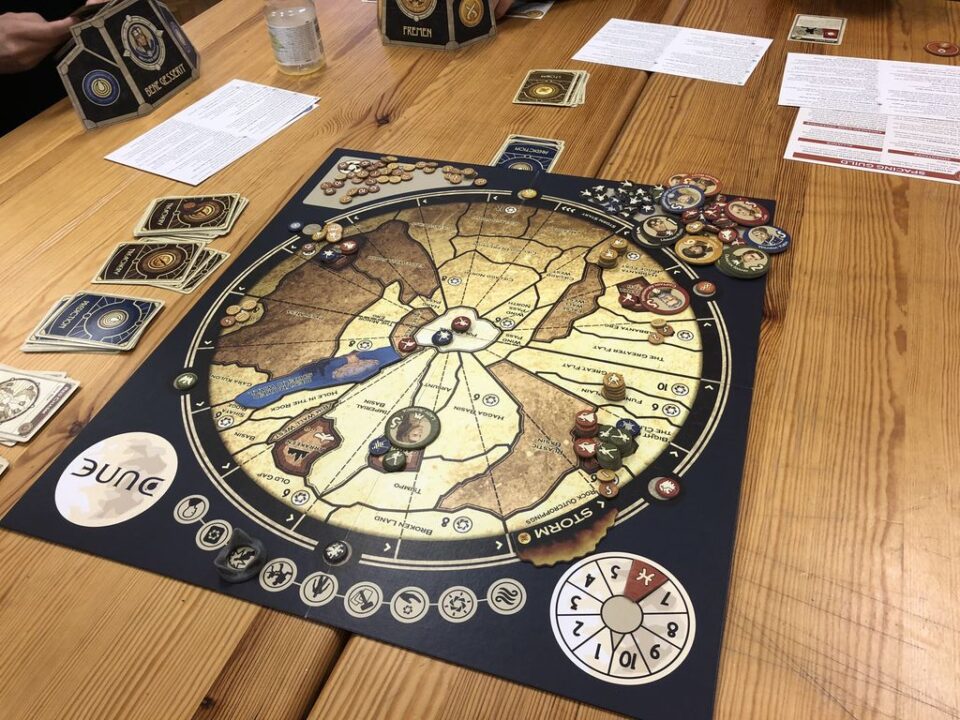
Alliances, Betrayal, and Chaotic Fun in Dune
Everyone told me Dune is a game of alliances. They weren’t joking. One minute, someone is your loyal friend, sharing spice and secrets. The next? They’re flipping the table (not literally, but close) and making a deal with your bitter rival. In Dune, you must trust your allies… but never too much. If you give away the wrong information or trust someone who has a worm’s heart, prepare for a sandstorm of betrayal.
There’s constant chatter around the table: whispered plans, wild threats, and that one guy who always insists he’s the peaceful Fremen. Sure, Steve. Everyone knows you’re plotting a double-cross. The alliance rules force you to make uneasy partnerships, since the game can only be won alone or, sneaky as ever, with an alliance. I love this. It means no one can hide in a corner and hope to win by themselves. Even the most quiet player gets pulled into the drama, with shifting alliances making every move tense and hilarious.
My personal favorite moment? Watching two sworn enemies high-five and plot the downfall of a third. It’s brutal and brilliant, and honestly, it’s what makes Dune a must-play if you love argument-fueled, social games.
Don’t expect any friendships to survive the spice wars untouched! But will your patience hold up for the game’s length? Grab a coffee, because next, I’ll be talking about Game length and pacing and if you’ll finish before your sandworm-sized pizza gets cold.
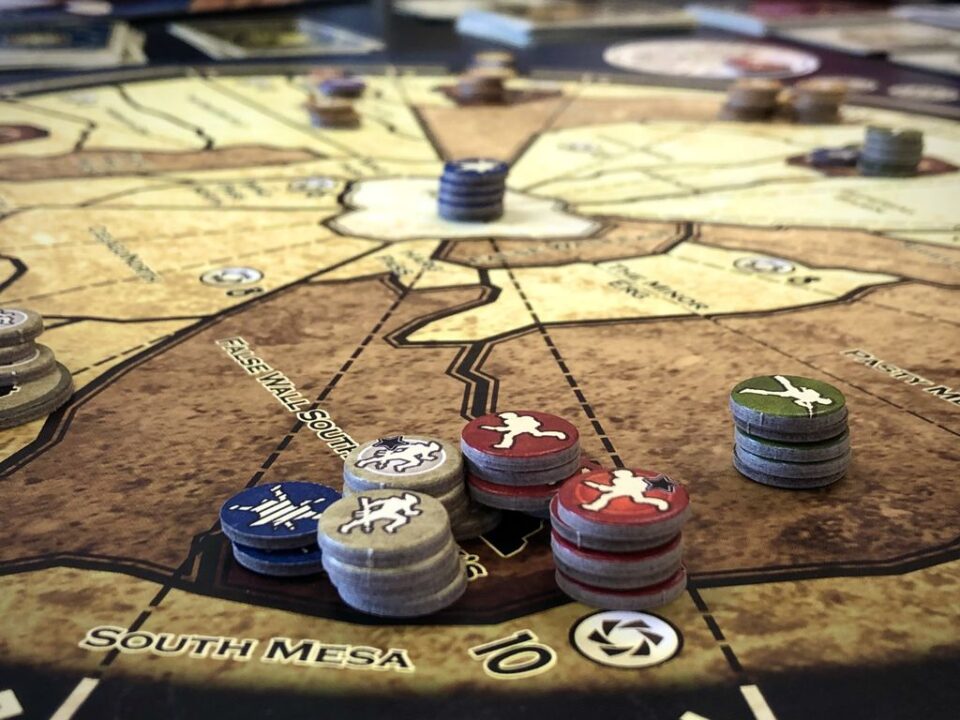
How Long Does Dune Really Take? Pacing and Playtime Explained
Let’s talk about time. Not the sands in the hourglass, but the time you’ll spend staring at Dune’s game board while plotting your revenge on your friends. Dune is not a quick trip to Arrakis. My group sat down expecting a two-hour journey and ended up five hours later, still arguing over the definition of ‘temporary alliance’. It’s epic, but also, wow, bring snacks.
The pace of the game can shift faster than a sandworm on a spice run. Early rounds can be glacial, with players tentatively poking each other, hoarding spice, and eyeing the board. But as everyone gets the hang of their faction’s tricks, things heat up. Suddenly, armies are popping up, betrayals are flying, and the clock feels like it’s on fast forward. You go from “I’ll wait until my next turn” to “Oh no, what have I done?” real quick.
The best part? Dune’s end-game has a built-in clock—if no one wins by turn 10, the player holding Arrakeen and Carthag gets the throne. This means you know what you’re getting into, and the sense of urgency ramps up as the finish line nears. Still, some sessions stretch out as people debate every grain of spice. If you love tense pacing and epic length, Dune’s your desert feast.
Next up: we’ll peek behind the shield wall and see whether Dune is a gambler’s delight or a strategist’s paradise. Shuffle your fate cards and get ready!
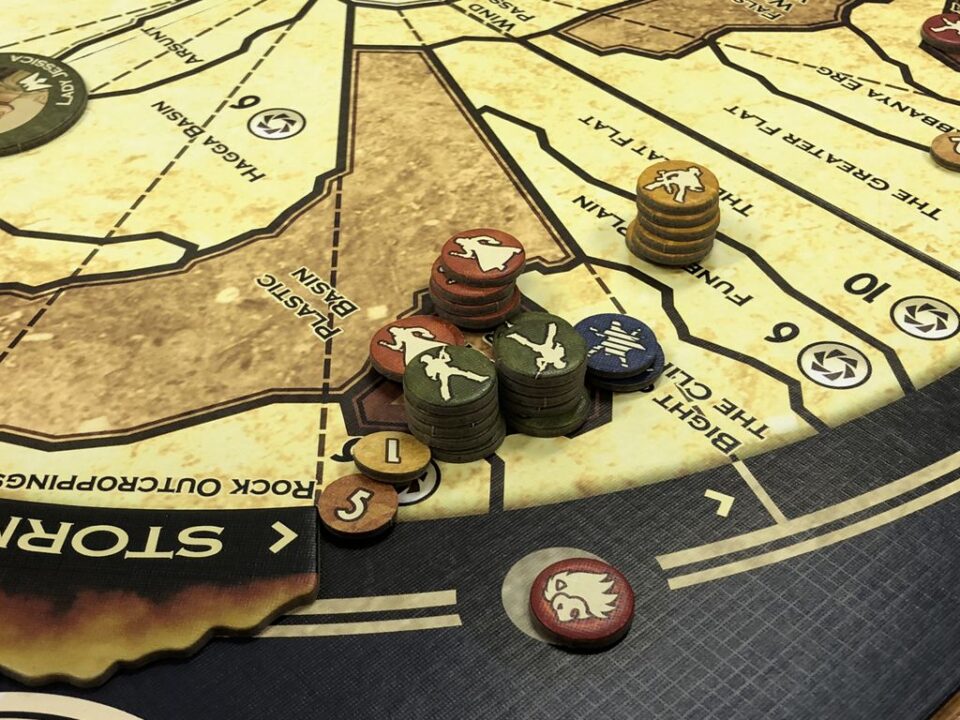
Luck vs. Strategy: Who Really Rules the Sands of Dune?
Alright, let’s talk about the real sandworm in the room—how much of Dune is brainpower, and how much is dumb luck?
To win Dune, you need to scheme more than your nan’s bridge club. Every turn, you’re juggling alliances, bluffing your mates, and eyeing the spice like a hungry Fremen. The game demands clever planning: you must time your moves, outguess rivals, and even plan for the worms (literally) that might ruin your best-laid plots.
But… Dune will sometimes kick over your sandcastle for laughs. You draw random Treachery cards—some are game-winners, some are duds that even Baron Harkonnen wouldn’t want as a birthday present. The dreaded storm swirls around the board, sweeping away armies because you rolled the wrong number. Don’t get me started on the infamous traitor cards. I once lost a sure victory to my own uncle because he flipped a traitor card at the exact worst time. I’m still holding that grudge.
So yes, Dune’s got a fistful of luck in its spice bag, but strategy is what brings home the win more often than not. Make smart deals, read the room, and know when to risk it all. If you hate random swings, you might feel salty, but for most folks, this blend keeps the game spicy and tense.
My verdict? Dune gets a solid four out of five sandworms. Recommended for cunning gamers who can handle a bit of wild desert chaos!
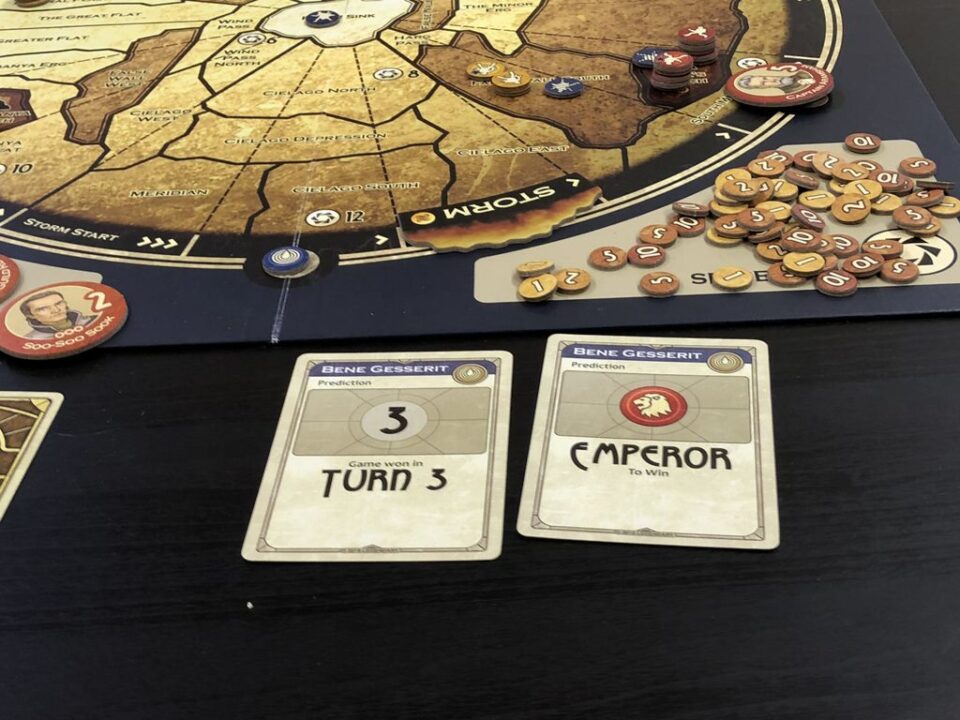
Conclusion
If you want an epic board game night filled with plotting, backstabbing, and wild showdowns, Dune delivers the goods. The factions keep things fresh, the alliances ramp up the drama, and yes, your friendships might need a time-out when it’s over. It’s not perfect—sometimes luck messes with your master plan, and the game can last longer than my patience in a sandstorm. But if you love deep strategy and have a group ready for chaos, Dune is hard to beat. Thanks for tagging along through this review. Now go gather your spice, pick your allies, and may Shai-Hulud be ever in your favor!

